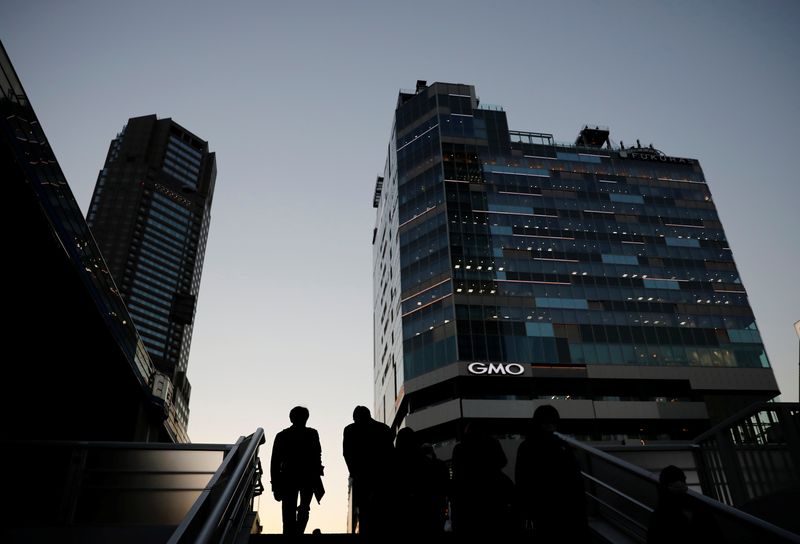More Japan firms to pass on costs of rising commodity prices, weak yen- Reuters poll
2022.07.14 02:11

FILE PHOTO: Pedestrians make their way at a business district in Tokyo, Japan, December 7, 2020. REUTERS/Kim Kyung-Hoon
By Tetsushi Kajimoto
TOKYO (Reuters) – Four out of five large Japanese firms are passing on higher commodity costs to customers or intend to do so, a Reuters poll found, a sharp rise from the previous survey six months ago as surging input prices and a weak yen drive up import costs.
Almost three quarters of firms polled also intend to lift prices of their main goods and services in the latter half of this year, illustrating a shift away from a cautious, deflationary price-setting mindset.
For years, Japanese firms have cut or kept prices steady, fearing that raising prices could scare away consumers accustomed to cheaper goods and services, in turn sending prices and wages into a downward spiral.
The Corporate Survey found 21% of big Japanese firms are passing costs to clients while 57% plan to transfer costs eventually. About one in five have not been able to do so.
That marked a sharp increase from the previous survey taken at the start of this year, in which 43% of big firms planned to transfer costs and 36% were not able to do so.
The poll highlighted the corporate response to cost-push, rather than demand-pull, inflation that has accelerated since Russia invaded Ukraine in February, prompting firms to lift prices of items as varied as food, fuel and cosmetics. Russia calls its actions in Ukraine a “special operation”.
While the cost-push inflation is seen unsustainable without substantial wage hikes, many firms said they have no choice but to raise prices to make ends meet as input costs surge.
“We are passing on costs little by little. What’s worrying is that we may not be able to transfer costs if demand drops,” a chemicals maker manager wrote in the survey on condition of anonymity.
“We have transferred much of the costs of raw materials price hikes from the past but we still need to pass on further costs wrought by the weak yen and surging fuel prices,” wrote a wholesaler manager.
“Consumers are living in a severe situation and they cannot afford to accept price hikes. We are facing their stiff resistance even though our earnings will worsen a lot without raising the prices of goods,” wrote a food company manager.
The monthly poll conducted for Reuters by Nikkei Research canvassed about 500 large non-financial Japanese firms from June 29 through July 8, of which roughly half responded.
POST KURODA
In a sign that tame wages are unlikely to offset price hikes, 41% of firms saw employees’ overall wages grow 1% to 3% this fiscal year and one third saw them flat, the survey showed.
Fewer than one of five firms plan to raise overall pay by 3% to 5% or more, dashing Prime Minister Fumio Kishida’s hope for profitable firms to raise workers’ salaries by more than 3%.
Likely reflecting accelerating inflation, 58% of firms said the central bank should maintain its 2% price stability goal, while 18% saw no need for any inflation target.
Asked who should succeed Bank of Japan (BOJ) Governor Haruhiko Kuroda whose term ends on April 8, companies’ views were split on three potential candidates, the survey showed.
Whoever replaces Kuroda will be hand-picked by Kishida and presented to both houses of parliament for approval by April.
Former BOJ Deputy Governor Hiroshi Nakaso and Masatsugu Asakawa, former vice finance minister for international affairs, led the choices, each picked by 18% of firms. Deputy BOJ Governor Masayoshi Amamiya followed with 16%.
Some 10% wanted Kuroda, 77, to stay. A manager at a real estate firm wrote: “We want monetary easing to continue.”








